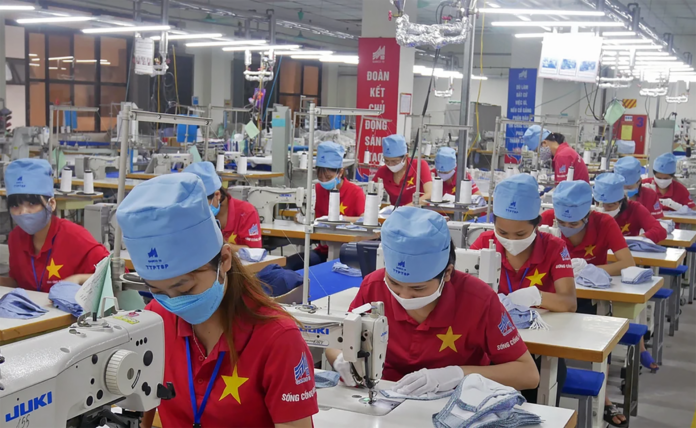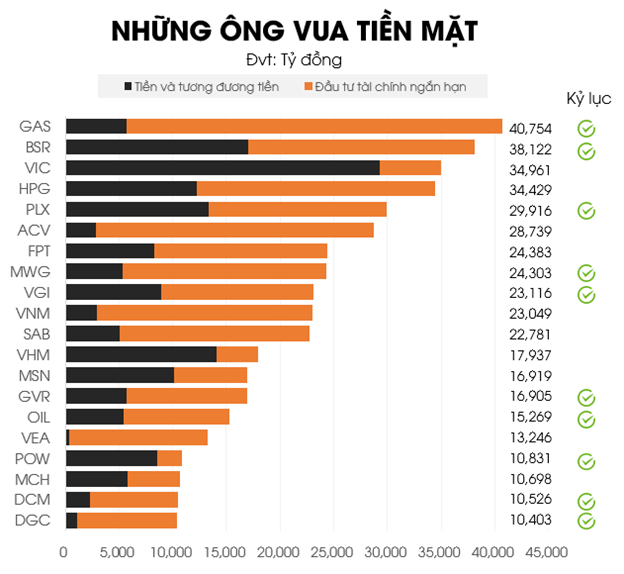Unleashing the Private Sector’s Potential: Overcoming Challenges for Take-Off
According to PGS, TS. Tran Dinh Thien, former President of the Vietnam Institute of Economics and member of the Prime Minister’s Policy Advisory Council, as we acknowledge the private sector as the most crucial driver of the economy in Resolution 68, we also recognize the struggles faced by private enterprises. The urgent task at hand is to find effective ways to invigorate the private sector, enabling it to regain strength and meet the target of having 2 million operating businesses in the economy, 20 businesses per thousand people, and at least 20 large enterprises participating in global value chains by 2030.
PGS, TS. Tran Dinh Thien points out that to unleash the potential of the private sector, it is essential to refine our market-oriented institutional framework. This includes clearly legislating and protecting private property rights, ensuring a level playing field for competition, and guaranteeing freedom to conduct business.
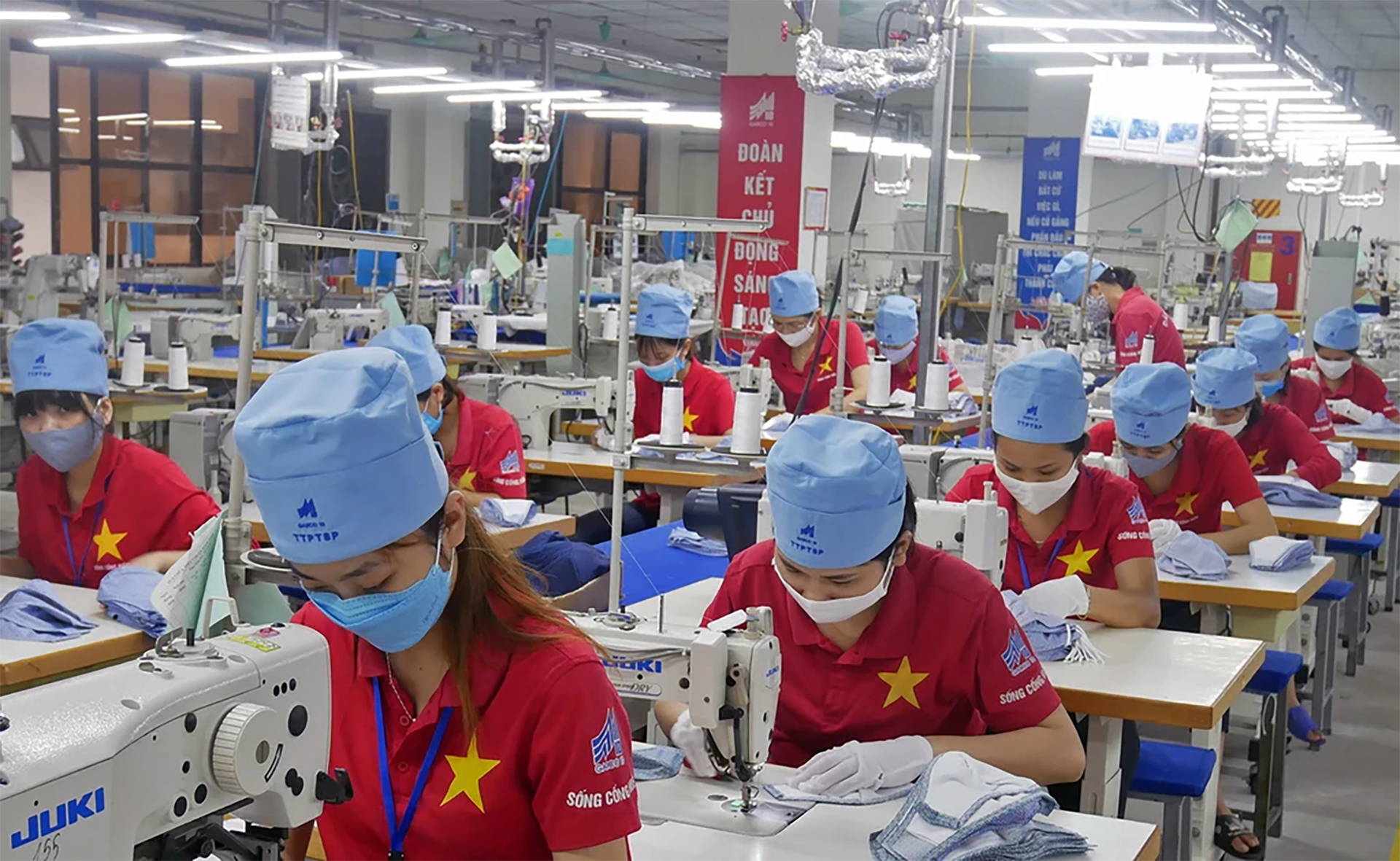
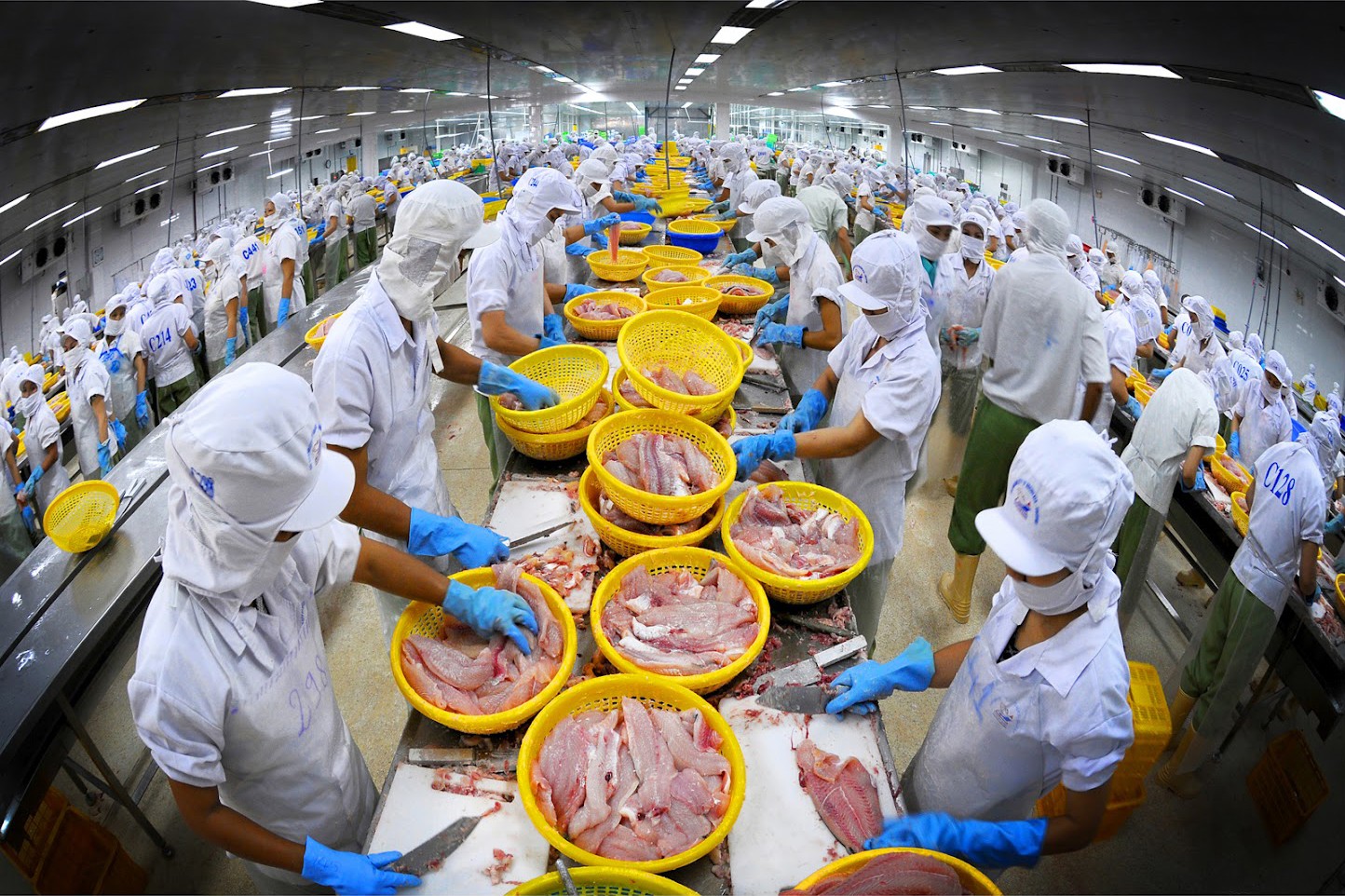
Vietnam aims to have 2 million businesses by 2030. Image: May 10 (left), Vasep.
The member of the Prime Minister’s Policy Advisory Council emphasizes that Vietnamese entrepreneurs are exceptionally capable and, given a fair and competitive market, they can excel and compete globally. This is evident in the rise of Vietnamese billionaires, with the country now boasting 6 USD billionaires, including Vingroup’s Chairman, Pham Nhat Vuong.
Vietnamese products have also made their mark in over 200 markets, with 7 export items surpassing 10 billion USD in turnover and 35 items exceeding 1 billion USD. Numerous enterprises have witnessed exponential revenue growth and successfully integrated into regional and global value chains. This not only holds political significance but also has a substantial economic impact, reducing the risks of trade conflicts and attracting long-term FDI inflows.

PGS, TS. Tran Dinh Thien. Image: BDT.
Establishing a transparent, competitive, and sustainable market economy will provide a solid foundation for Vietnamese private enterprises to integrate into global supply chains. While free trade agreements have opened doors, we have yet to fully capitalize on these opportunities.
“Undoubtedly, the path ahead won’t be easy, but we now have the political will and, more importantly, the right approach. We can confidently place our faith in the private sector to be our modern-day ‘Saint Giong,’ propelling Vietnam forward in this new era,” affirmed PGS, TS. Tran Dinh Thien.
Dispelling the “Merchant” Stereotype
In a conversation with
Tien Phong
, economic expert Can Van Luc shared that while Vietnam has witnessed the emergence of prominent corporations in various key sectors, the majority of private enterprises remain small and medium-sized, operating independently and lacking the necessary linkages to effectively engage in global value chains.
According to a recent announcement by the Vietnam Chamber of Commerce and Industry (VCCI),
many Vietnamese businesses lack clear direction when it comes to participating in global value chains, with nearly 65% unprepared. Only about 15% have a long-term comprehensive strategy. Vietnamese businesses’ ability to meet partners’ requirements in global value chains is mediocre, facing challenges in timely delivery and technical standards.
During economic downturns or supply chain disruptions, domestic businesses struggle to create resource-sharing loops or optimize inputs and outputs.
Expert Can Van Luc emphasized that government support for private enterprises has not yielded practical results. Currently, less than 30% of small and medium-sized enterprises have access to credit. Access to land, scientific and technological capabilities, information, markets, and human resources remain bottlenecks hindering the private sector’s potential.
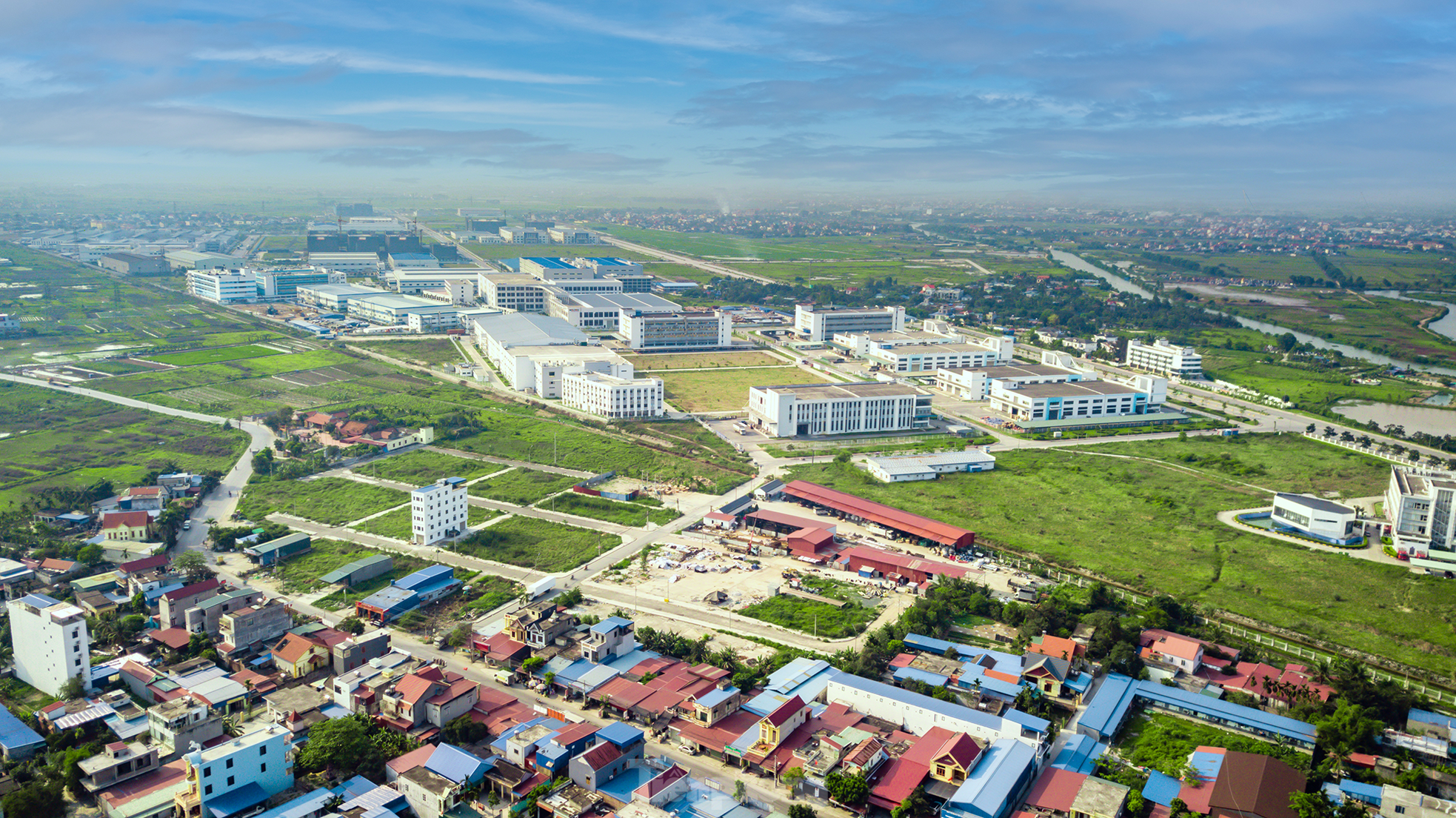
Less than 30% of small and medium-sized enterprises have access to credit. Image: Loc Lien.
Mr. Luc believes that to achieve the goal of the private sector contributing approximately 55-58% of GDP, 35-40% of total state budget revenue, and providing employment for about 84-85% of the total labor force, policy barriers must be removed, and capital flows must be streamlined to reach the right places. More importantly, the Vietnamese business community needs to collaborate and develop potential markets.
“The tasks mentioned above are beyond the reach of small and medium-sized enterprises, and even large corporations. They require sound policies and directions from the Party and the State, such as commissioning private enterprises for key national projects and supporting their development into national-level enterprises (based on contribution rather than size).
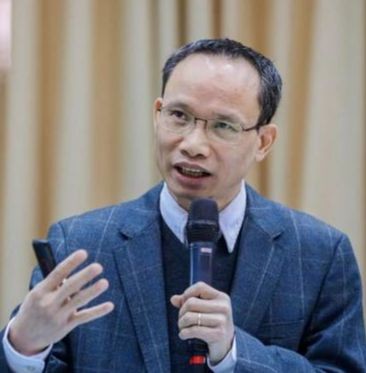
Economic Expert Can Van Luc. Image: BDT.
We need to enhance cooperation and market development, and establish detailed mechanisms and principles for private enterprises to collaborate with state-owned enterprises and other state partners in public investment projects, PPP projects, and national priority projects…” – Mr. Luc elaborated.
According to expert Can Van Luc, Resolution 68 presents a pivotal opportunity for a breakthrough. However, private enterprises must also introspect and address their internal weaknesses, especially by fostering linkages to form a robust community of Vietnamese businesses with a broader vision, instead of engaging in unhealthy competition.
Meanwhile, PGS, TS. Tran Dinh Thien emphasized that it is high time for private enterprises to decisively break free from dishonest and short-sighted business practices. Only then can we transform the private sector into a robust, sustainable, and efficient economic force, turning the dream of elevating “merchants” into the “darlings” of the economy into reality.
Unleashing the Compressed Energy
Ms. Tran Thi Hong Minh, Director of the Institute for Policy and Strategy (CIEM), under the Central Policy and Strategy Committee, affirmed that Resolution 68 is not about favoring the private sector but rather recognizing the objective reality and the country’s development needs in the coming period.
The CIEM Director assessed that we currently have the right policies in place. However, what we lack is an implementation apparatus with a reform-oriented mindset and strong execution capabilities.

Dr. Tran Thi Hong Minh. Image: Cafef.
“We must set KPIs for each official and civil servant involved in administrative procedures by allowing the people to evaluate their performance in implementing policies and supporting businesses. We need to transform ministries and sectors into architects of the institutional system, rather than merely drafting resolutions and delegating tasks to subordinates.
It is essential to change our mindset and view entrepreneurs as partners rather than subjects of default supervision. If we can achieve this, Resolution 68 will come to life, unleashing the immense energy within our economy – the energy fueled by the private sector’s aspiration for honest and prosperous businesses…” – Dr. Tran Thi Hong Minh stated.
No Criminalization of Economic and Civil Relations: Experts Urge for a Necessary Step
“Deregulating and reducing the number of conditional business sectors is key to curbing over-criminalization. By simply deregulating one conditional business sector, numerous binding regulations and accompanying procedures can be eliminated,” stated the former Vice Chairman of the National Assembly’s Committee.
Is Your Business Ripe for the Picking?
In the global value chain, Vietnam’s participation has largely been confined to low-value processes such as manufacturing and assembly, which offer slim profits, little bargaining power, and easy replaceability. To break free from this mold, businesses need to embrace not just new machinery but also a novel mindset.
Dr. Tran Dinh Thien: We Need More Private Sector Representatives and Scientists in the National Assembly
“Renowned economist Dr. Tran Dinh Thien proposes an increase in the number of private entrepreneurs and scientists among the National Assembly delegates. His vision involves a more inclusive law-making process, ensuring that a diverse range of expertise contributes to the country’s legislative framework.”
The Art of Navigating Bureaucratic Red Tape: Are Vietnamese Businesses Truly Prepared?
In the global value chain, Vietnam’s participation has largely been confined to low-value segments such as manufacturing and assembly, which offer slim profits, limited bargaining power, and easy replaceability. To break free from this mold and achieve a breakthrough, businesses need to embrace not just new machinery but also a novel mindset.

